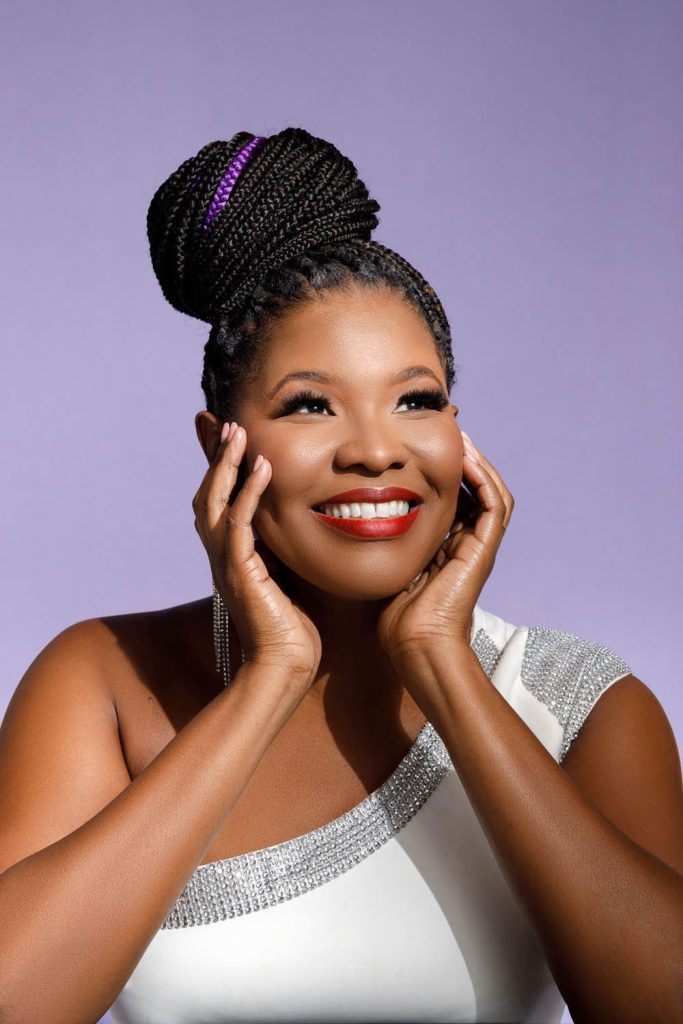Hundreds of travel writers have come to the Caribbean over the decades to describe the region to international audiences — to affirm or condemn our aesthetic and landscape. Not so many music writers have combed our cities, towns, and beaches looking for the essence of how we sing, how we dance, how we live.
They have mainly focused on the music that propels island carnivals; provides sanctuary for minds inspired by Bob Marley, Rastafari, and Jamaica; or moves a global Latin music industry dancing between caliente spirit and Afro-Caribbean dembow beats.
Among all these “musics from hot latitudes”, there is a small contingent of singer-songwriters making original music that thrills with the idea that a metropolitan sound can bring recognition to island songcraft — to a new Caribbean aesthetic.
With contrasting journeys that reflect the diverse beauty of island life and opportunities, Sabrina Francis, Kye De Vere, and Kellie Cadogan tap into the zeitgeist of a modern Caribbean both influenced by and influencing the world.
Kellie Cadogan
Barbados
The influences and imitation that pervade much Caribbean lifestyle has not always been a bad thing. Rihanna, the Caribbean’s biggest living music superstar, sings pop music when not being the boss of her cosmetics empire, Fenty Beauty.
In her countrywoman, Kellie Cadogan, we see a maturing career that looks, with one eye, to a future built by years of intelligently mastering her craft; and with another to a legacy that once positioned her to benefit from the “Rihanna effect” in 2005, when Barbados attracted the attention of a global music industry in search of new talent.
She began her recording career in 2002. And after three albums in 15 years, she admits that, “I had a lot of space in between the music. I was still gigging, but it’s quite exciting to create projects. It’s a journey I truly enjoy.”
Her initial influences were Olivia Newton-John and the message-laden calypsos of her Bajan counterpart (and “pumpkin-vine family”) Stedson “Red Plastic Bag” Wiltshire, before falling under the spell of Jill Scott and Alicia Keys. Her catalogue spans genres.
“The first album was definitely jazz, the second one has some jazz and R&B,” she explains. “I think within recent times, the gospel — which is the last project — has really been coming out a lot more … The combination of gospel and jazz with some hints of R&B is a part of who I am. I’m at a stage now where I want to be able to do the music that speaks the messages that I believe.”
Sabrina Francis
Grenada
Not yet born to experience the odd and deadly 1983 American invasion of Maurice Bishop’s newly revolutionised Grenada, and not old enough to fully register the emotional impact of Hurricane Ivan in 2004, Sabrina Francis is a singer with an angelic voice.
Her concept recording and immersive live project, Meet Me at the Mango Tree, is a newly minted autobiography through song, reflecting her journey through the pathos of “disappointment, abandonment and heartbreak” toward a promising future. The lyrics of her recent single, “Magical Life”, tell the story:
I’m up in the middle of the night
Staring up at a window above me
But it does not lead outside
It’s a world on its own and I found it …
I asked your world my questions and woke to no reply
Maybe this is my why and my answer
To start living a magical life.
She’s supported by the patronage of two Swiss expatriates resident in Grenada, along with their seemingly endless enthusiasm and broader metropolitan vision. Her mother, a calypsonian, migrated to seek better fortunes for their family. With Francis and her siblings having to make ends meet, the Swiss couple heard her dulcet voice when she sang at their hotel Christmas party — then disappeared.
“I’m from the very north of the island — deep, deep country,” she explains.
After a year-long search, the patrons worked the system here and abroad with goals of developing her songwriting skills — placing her in a prime position among island singers, and sharing her talent across the Caribbean and the United Kingdom.
“At the top of our list right now is to break into the UK with Meet Me at the Mango Tree,” she notes. “We want to take 2024 to build on it even more, make it better, and tour with it in 2025.”
With over four dozen songs on streaming platforms, which she categorises as Afro-Caribbean pop, she can better gauge her catalogue and career.
“The early songs was just me still trying to find what I now consider my sound. And just because I lived life — I’m older, I’m more experienced — I’m more confident in the things that I do. I feel that the songs I create now are truly my songs, my message, and I stand in front of them proudly.”
Kye De Vere
Trinidad & Tobago
On a concurrent path of self-discovery in a (re)burgeoning career is Kye De Vere. Being the daughter of an English mother and Trinidadian father offers and demands another way of understanding Caribbean life and heritage.
Her southeast London accent dips in and out as this self-described “Tobago gyal” discusses the first turbulent 18 years of her life (half her life, really), moving back and forth between England and Tobago before settling permanently now on the island. It gives her an attitude of almost forced-ripe maturity and earned identity.
“As kids, we were out there, and of course, we were way too young,” De Vere says. She had to grow up fast and find her way in the world.
Her songcraft reflects these dual poles of “here” and “there”. Musically, she sits between modern island electronic beats and, lately, stirring soul belting. She began recording in 2016.
“The melody governs what I am feeling, how I am feeling, what I want to say, and then the lyrics kinda fit in,” she says of her writing process.
Recently, taking up the challenge to appear in a music industry showcase in Port of Spain (Trinidad), De Vere wowed the crowd with personal anecdotes set to melodies that channelled both Amy Winehouse’s honesty in tone and subject, and Lauryn Hill’s simple audacity.
But, shunning the mask of mimicry, she declares, “the more I got to know myself, I am learning my voice and putting my own twist on the thing! I just started experimenting and that helped me discover my own voice. That is still happening.”
The Caribbean character reflected in these three island songbirds is best witnessed live. The resilience; the persistence; the overcoming of obstacles by fate, by favour, by force of nature are part of the DNA of Caribbean lives. Discovering new voices in intimate spaces or on festival stages across the Caribbean is easier now, and these talented singer-songwriters ever reward us with their efforts to blend global sounds, local lore, and personal stories to make something new.

